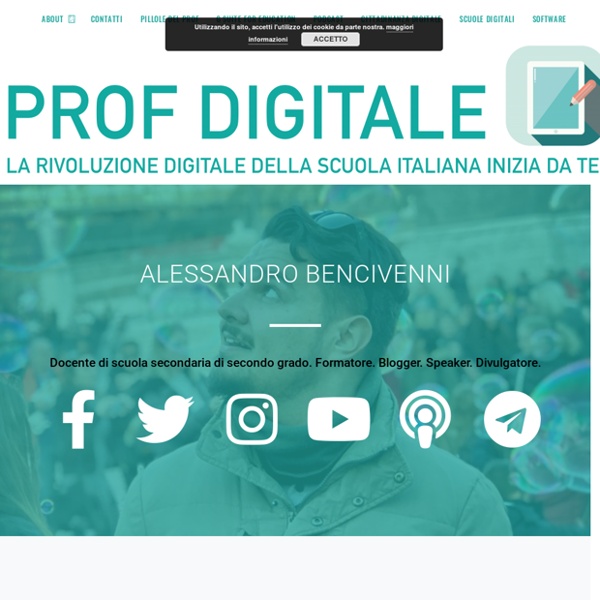



6 Ed Tech Tools to Try in 2015 While doing research for my upcoming e-book, The Teacher’s Guide to Tech, I have come across dozens of tools with pretty awesome potential for teaching and learning. These six are the ones I think are the most interesting and most useful right now. Wherever you fall on the technology spectrum — from newbie to experienced user — there’s probably something here you haven’t tried yet. Although most of these tools aren’t brand-new, they are all steadily growing in popularity, and each one can enhance teaching and learning in a unique, time-saving, or engaging way. For every tool, I provide a brief overview, my personal rating of its difficulty, a video that demonstrates how the tool works, and a list of suggested ways you can use it.
How are Listening and Reading Related? - Listenwise Blog As humans, we have so many important ways we convey and understand information as we communicate. We are born with ears, and are never actually taught how to listen—it’s understood how to do it, we just start. As kids we grow up learning how to speak by listening to the people who are close to us, and imitating others. Almost everyone enjoys listening to radio, watching videos, talking on the phone. All of these things help to grow these skills, just by doing them repetitively, but how often do we focus on the these skills that we take for granted? 32 Great Educational Websites for Teachers April 29, 2017 Here is a handy infographic we have been working on for the last couple of days. We compiled 32 educational websites based on the Ultimate EdTech Chart we published a few months ago. We arranged these websites into 8 different categories and for each of these categories we came up with four websites that best represent the selected content area.
Code Maven and Game Maven Teach Kids to Program Their Own Games Code Maven and Game Maven are interactive programming tutorials from Crunchzilla. Code Maven and Game Maven use the same style as the popular Code Monster javascript programming tutorial. That style is to present a piece of code with instructions on one side of the screen while providing a visual of the outcome on the other side of the screen. Code Maven offers 59 lessons for students to work through at their own pace to learn programming fundamentals.
Free Teacher Development Webinars – CELT Athens Since the beginning of 2017, CELT Athens has been offering a series of monthly teacher development webinars free for all practising and aspiring English language teachers. They are hosted in our own Live Classroom powered by Adobe Connect Pro, the top interactive platform for online learning. You can log in here These interactive webinars focus on areas relevant to working professionals who need practical advice on their day-to-day teaching. Webinar presenters are tutors on our courses at CELT Athens, including the Cambridge CELTA and Delta.
10 Free Tech Tools & Websites Every Teacher Should Know About – Nat Geo Education Blog Confession: I was a late tech adopter. I didn’t own a computer until I was in college. I couldn’t record on the VCR, and I didn’t have a smartphone until about 2009. As a new teacher, I felt comfortable with PowerPoint and Word, yet I rarely explored any other tech tools. I felt out of my league when it came to tech, and chalked it up as something the younger, more tech-savvy members of the staff would do. My mindset changed as the number of devices available in our school grew, as well as my observations of the ease with which my students could navigate and create with their laptops.
Learning Twigs The idea of disintermediation ("cutting out the middle man") in terms of professional qualifications has been slowly but surely gathering steam in a variety of fields. Take a look at a range of Position Descriptions for new jobs these days and phrases along the lines of Tertiary qualifications in a relevant discipline, or equivalent experience and expertise/skills are becoming more frequent. Private companies (as we might expect) have been quicker to apply this in practice rather than rhetoric compared to educational institutions, mired as most of them are in conservative paper-reliant processes for verifying applicants' skills, but even here we are starting to see change. As university qualifications become more expensive and fail to deliver effective ROI for the people who invest their time and money in them, the idea of cutting them out of the picture partly or wholly is becoming not only more attractive, but more feasible. Branding is still important, however. A.
Bloom's Digital Taxonomy Verbs [Infographic] When using Bloom’s Digital Taxonomy (a revised take on Bloom’s devised by educator Andrew Churches), it helps to have a list of verbs to know what actions define each stage of the taxonomy. This is useful for lesson planning, rubric making, and any other teacher-oriented task requiring planning and assessment strategies. The Bloom’s Digital Taxonomy verbs in this handy infographic apply specifically to each stage of the taxonomy.